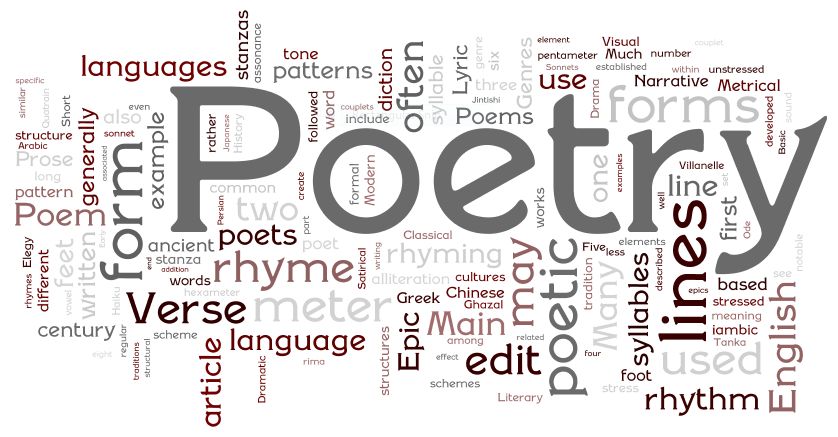It’s ten to seven in the morning on Huddersfield’s magnificent station; it’s dark outside and the platform lights are harsh. I’ve got my ticket and I’m glancing at the departure board and suddenly a familiar figure in a flat cap catches my eye. It’s Craig Bradley, children’s poet and performer; he’s off to a school in Liverpool to do a gig in front of four hundred secondary school kids and I’m off to the Harris Museum in Preston to work with three classes of junior school pupils, and we both know that by the end of the day there will be a lot more poems and stories in the world that will have been made by these young writers and talkers.
In the north east, Kate Fox, Alfie Crow and Jeff Price are some of the poets doing similar work in schools. For teachers and students an hour of performance poetry can be an oasis of freedom, says Kate, who worked on two big projects last year with schools: the Great North Passion with South Shields Community School and the Hartlepool Bombardment with Dyke House School.
Some people would say that this kind of work isn’t important, but of course it is: to help to shape the lives of younger and older people through putting them in control of language and what, for want of a better word, we call “literature” is vital if we’re to live in a world that values all its citizens. People who write their own poems are less likely to acquiesce to their libraries being closed, in my humble opinion.
I’m a product of the West Riding of Yorkshire, and I suspect Craig is too; and I don’t just mean a geographical West Riding, I mean an aesthetic and cultural one, too. When I was at school in the 1960s the West Riding’s chief education officer was a godlike genius called Sir Alec Clegg, who had a simple message: all children are creative. He believed that every child mattered to the great continuum of creativity and that when a child wrote a poem they were part of a great cycle that included Shakespeare and Dickens and, hopefully, William Carlos Williams and Mina Loy, too. At the end of every lesson, and often halfway through it too, we’d sing a song or do a dance or make a poem, and this increased and nuanced our understanding of what the teachers were trying to teach us.
These days, with Sir Alec Clegg long gone, maybe that’s not the case anymore. Perhaps creativity is seen as the icing on the cake rather than the full cake; to do paintings is sometimes seen as an activity of lesser importance than the doing of maths.
And yet, a couple of days after meeting Craig on the station, and wishing him luck and tweeting his picture, I was giving out prizes for young apprentices in the construction industry at a smart-suit-and-dicky-bow do at a hotel in Sheffield and all the employers kept emphasising to me that they wanted creative people in their workplaces, creative employees on their sites. Maybe it’s a huge leap from making rhymes up in a school classroom with somebody like me or Craig or any of the hundreds of other writers who work in schools every day to designing and building smart houses that will do as you tell them thanks to the Internet of Things. But I don’t think it is.
Craig and I talked about the wonderful questions children ask you, and his favourite forms the title of this piece: “If your legs were made of chocolate, would you eat them?” That’s wonderful: it’s bold, it’s poetic, it’s funny. It’s creative. He left me grinning with joy at the creativity of our young people.
Oh, and I was also grinning at Craig’s answer: “Yes, but I wouldn’t touch my Cream Eggs.”
Ian McMillan is giving the Fickling Lecture this evening at Newcastle University. You can follow him on Twitter.
How important is poetry and creativity to you? Tell us in the comments section below – by clicking on the little plus sign.
(Views expressed on our website and in our magazines and emails are not necessarily endorsed by Northern Correspondent.)


I too write poems and have done so since the age of 10 years old when I first started to read Shakespeare having heard the play “Hamlet” on the radio. This inspired me and lead to reading and writing poetry and watching such plays. My background did not include the topic mentioned, I did not have the inspiration indicated by Ian, but agree that it is essential that the next generation should be encouraged to seek to full their potential in every way possible and be doers rather than watchers, thinkers rather than those who are accepting of other peoples ideas. This is especially true of those in society who have the least resources who need to be given the chance to see into the light of knowledge which often is found in poetry. literature and art.